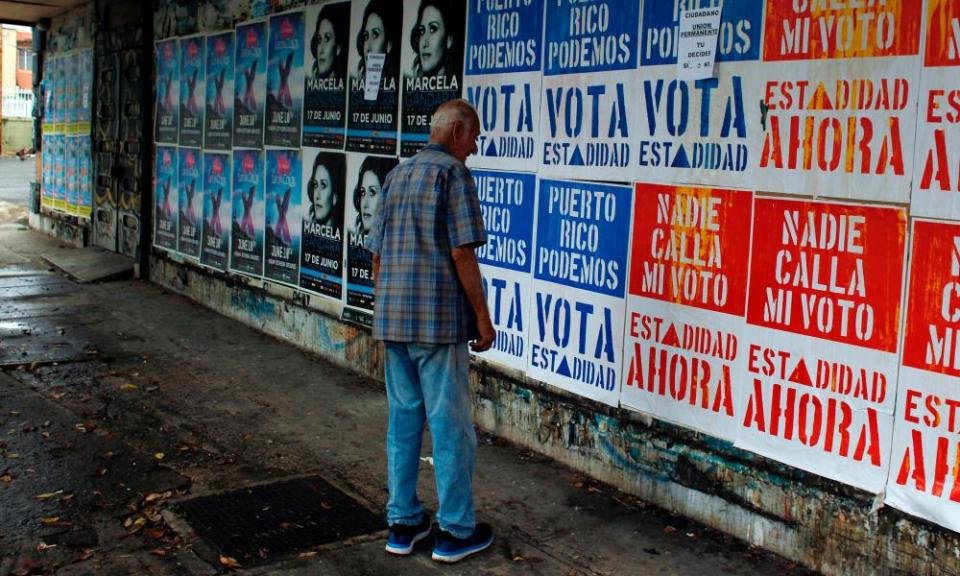Puerto Rico heads to polls in referendum on becoming 51st state
Fifth such vote in 50 years comes after election of governor Ricardo Rosselló, with all main opposition parties boycotting event

Puerto Ricans are heading for polling stations as the island’s fifth plebiscite in 50 years on whether to become the 51st state of the United States gets under way.
The referendum is the brainchild of the ruling Partido Nuevo Progresista (PNP) and its governor of Puerto Rico, Ricardo Rosselló. He won election last November at the tender age of 37 largely on the promise of making a new push for statehood.
But the credibility of the vote has been dented by a boycott staged by all the main opposition parties, including those who want to uphold the status quo and those who want to make a break for full independence. Just how impactful the plebiscite will be depends on how many of the 2.3 million Puerto Ricans who are registered to vote can be persuaded to turn out, and within that figure, what percentage opts for US statehood.
For more news videos visit Yahoo View, available on iOS and Android.
Puerto Rico has been under the tutelage of the US since 1898, when it was handed over as war booty at the end of the Spanish-American war. The islanders were granted US citizenship in 1917, but they have continued to exist in a colonial limbo in which much of the economy is tethered to the US mainland without them being able to vote for representatives in Congress or the White House.
Ultimate power within this colonial relationship rests with Congress, and as such, the success of today’s vote depends overwhelmingly on how Washington responds. The indications so far are not good for supporters of statehood. Luis Gutiérrez, a Democratic US congressman from Chicago of Puerto Rican descent, who favours full independence, dismissed the vote as a charade given the lack of interest in it among his colleagues on Capitol Hill.
“The statehood-ers are putting on a rather silly show, as though this was Tennessee becoming a state 200 years ago. The result will come in, they will say ‘We demand statehood!’ and somehow they will expect that this will embarrass the US Congress into doing something. The only problem is, I don’t think Congress will respond in any way at all, regardless of the outcome.”
Gutiérrez added that Donald Trump made the likelihood of real change even smaller. “I don’t see Trump’s base saying: ‘Yes, let’s make Spanish-speaking Puerto Ricans the 51st state.’”
But in an interview with the Guardian, Rosselló said he was confident that Washington could be made to listen given a resounding result in Sunday’s poll. “Change is in the air. The US is the third largest Spanish-speaking nation in the world. It’s time to argue this out.”
Once polls close at 3pm eastern time, all eyes are likely to be focused on turnout, as an indication of how fired up Puerto Ricans are about the idea of becoming a formal part of the US. In previous polls, the population has tended to be equally divided between statehood and the status quo, with a small but potent element favouring independence.
Rosselló said the turnout should not be the overwhelming factor in measuring success, as with no general election to peg the referendum to it was likely to be lower than usual. “The narrative shouldn’t be the turnout – it should be who wins the vote and by what margin,” he said.

